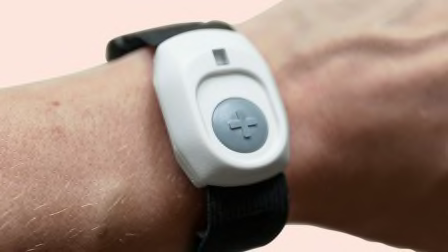How to Fix an Overactive Bladder
These strategies are effective at stopping leaks

Bladder leaks can be disruptive—and they’re very common. Up to 30 percent of older adults experience incontinence. The problem is more prevalent in women, but the percentage of men with an overactive bladder—leakage is a major symptom—has risen over the past decade or so, probably due to an aging population and improved diagnoses. Here’s what to know about keeping your bladder working well and when to see a doctor.
What Causes Bladder Leaks?
Urge incontinence, a common type of leakage, happens when you have a sudden or intense need to go to the bathroom but you leak before you make it. It’s usually caused by an irritant that prompts the bladder to contract when it shouldn’t. Irritants can include coffee, spicy foods, and artificial sweeteners.
How to Prevent Them
Start by prioritizing a generally healthy lifestyle, says Jennifer Miles-Thomas, MD, an assistant professor of urology at the Northwestern University Feinberg School of Medicine. Many fruits and vegetables, for example, are a key part of a healthy diet. They’re also high in fiber, which helps prevent constipation, says Chris Manakas, MD, a urologist at UW Health and an assistant professor of urology at the University of Wisconsin School of Medicine and Public Health.
Limiting bladder irritants such as coffee (even decaf) is also important. Exercise can help with incontinence and keeping your heart healthy, which may also reduce your dosage of (or need for) diuretic meds (which can make you urinate more). Plus, if you’re lighter on your feet, it’s easier to make it to a bathroom before a leak, Miles-Thomas says.
A physical therapist can help with Kegel exercises and pelvic floor PT, which can help address weakness in your pelvic floor (the muscles that support your bladder).
When to Seek Medical Help
If you experience regular incontinence, see a doctor as soon as possible. “Often people seek help when it’s too late and options are more limited,” Manakas says. Outcomes are better for those who work with a doctor sooner. Your doctor may want to rule out conditions like a urinary tract infection or kidney stones. Sleep apnea, diabetes, and prostate problems are also associated with incontinence.
Your primary care doctor might refer you to a urologist. In some cases, urologists may prescribe certain medications to reduce leakage or suggest a procedure (see below).
How Much Can Meds Help?
A class of drugs called antimuscarinics (which include trospium, darifenacin, and oxybutynin, available for women as an over-the-counter patch) can help relax an overactive bladder. But the drugs have been linked to serious side effects, including dementia, and they’re no longer a wise first choice for treatment.
“The older you are, the higher the risk of experiencing central nervous system side effects that can be as severe as hallucinations,” Manakas says. Another class of drugs, beta-3 agonists (such as mirabegron), can have similar results without those risks. Depending on the cause of bladder leaks, some medical procedures may help with severe cases.
A mesh bladder sling can help support your urethra, and Botox injections or bulking agents can help reduce leaks, too. But as with drugs, procedures can cause significant side effects. Your doctor can help you weigh the pros and cons.
Editor’s Note: A version of this article also appeared in the January 2025 issue of Consumer Reports On Health.




